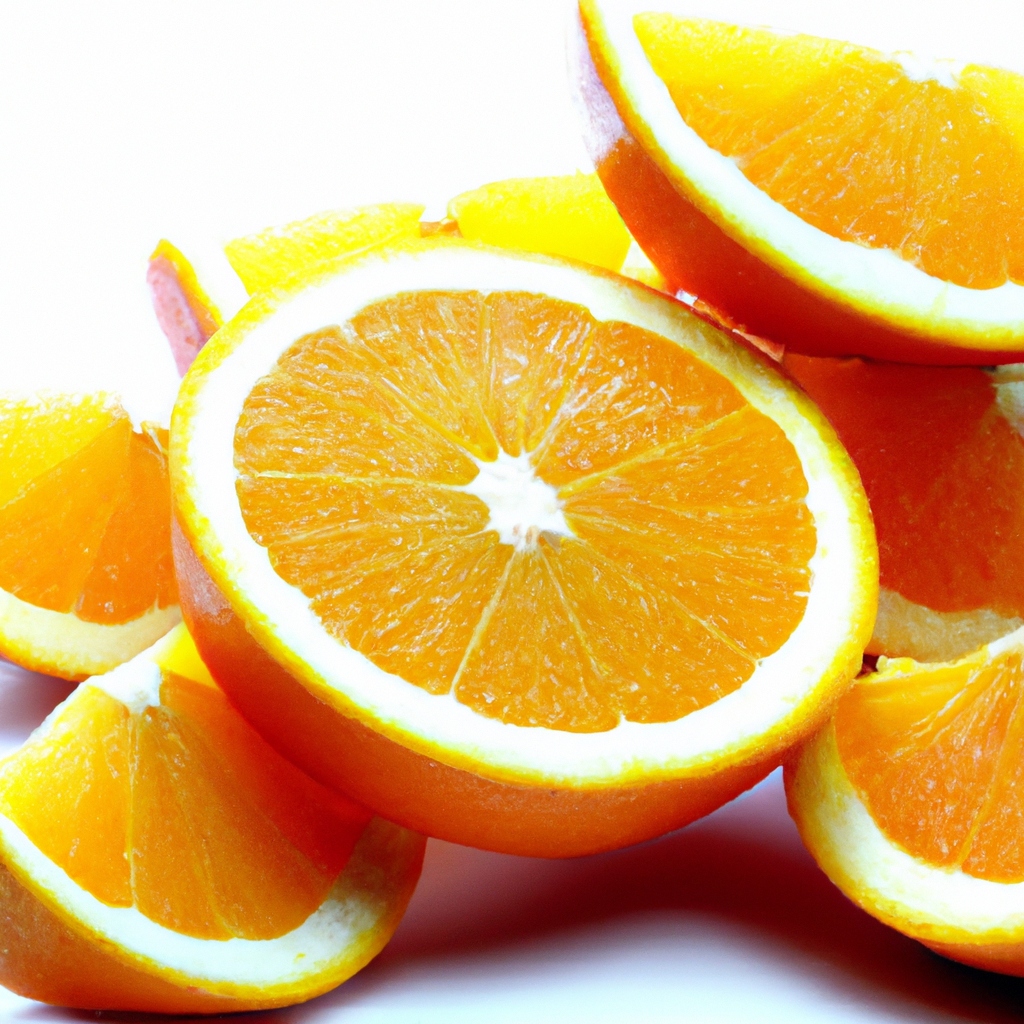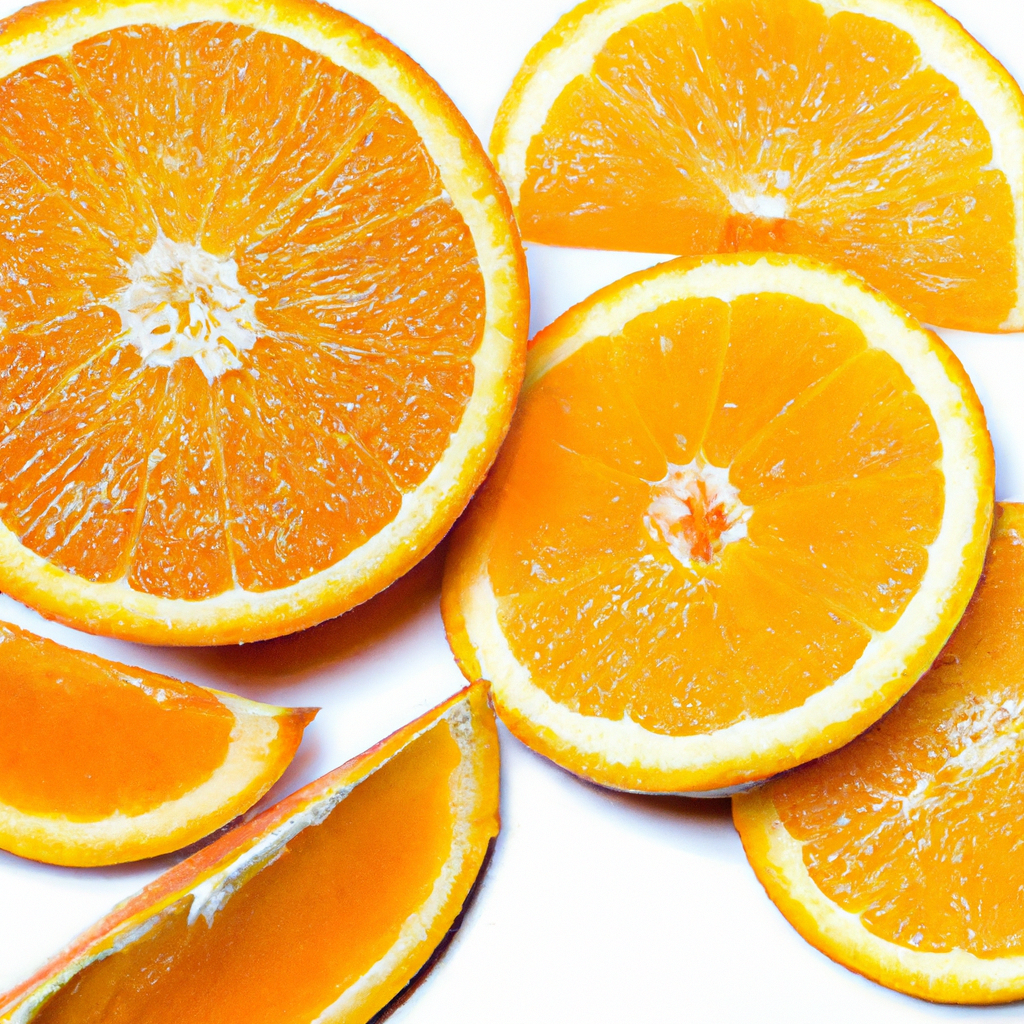If you struggle with acid reflux, you know that certain foods can exacerbate the uncomfortable symptoms. In this article, we will highlight the top 10 foods you should steer clear of to help manage your acid reflux. By avoiding these trigger foods, you can take control of your diet and potentially find relief from the often debilitating effects of acid reflux. So, let’s dive in and discover which foods to avoid for a more comfortable and enjoyable life.
1. Citrus Fruits and Juices
Lemons
Lemons, with their refreshing taste and high vitamin C content, are often a favorite addition to beverages and dishes. However, if you suffer from acid reflux, it’s recommended to limit your consumption of lemons. The high acidity of lemons can aggravate the already sensitive lining of your esophagus, leading to discomfort and heartburn. If you do choose to enjoy lemons, it’s advisable to consume them in moderation and not on an empty stomach.
Oranges
Like lemons, oranges are another citrus fruit that can trigger acid reflux symptoms. Their tangy and acidic nature can increase the production of stomach acid, leading to heartburn and irritation. While it’s important to include fruits in your diet, if you have acid reflux, it may be wise to opt for low-acidic fruit options like bananas or melons instead.
Grapefruits
While grapefruits offer a range of health benefits, including being rich in vitamin C and antioxidants, their high acidity and citrus content make them less suitable for individuals dealing with acid reflux. The high acid content in grapefruits can aggravate your symptoms and lead to discomfort. If you enjoy the taste of grapefruit, consider consuming it in moderation or exploring less acidic fruit alternatives.
2. Tomatoes and Tomato-Based Products
Tomato Sauce
Tomato sauce is a staple ingredient in many dishes, from pasta to pizza. However, for acid reflux sufferers, the high acidity of tomatoes can be problematic. Tomatoes are known for their high levels of citric acid and malic acid, which can trigger heartburn and exacerbate acid reflux symptoms. You may want to consider limiting your intake of tomato sauce or opting for lower-acidic tomato varieties, such as yellow or orange tomatoes.
Tomato Soup
Similarly, tomato soup can also be a trigger for acid reflux due to its tomato-based ingredients. The acidity of the tomatoes combined with other potential trigger ingredients like onions and garlic can lead to discomfort and heartburn. If you enjoy the taste of tomato soup, you might want to experiment with alternative recipes using lower-acidic tomato varieties or explore non-tomato-based soups as a healthier option.
Tomato Juice
Tomato juice, often touted for its nutritional benefits, can be problematic for those with acid reflux. The high acidity of tomato juice can contribute to acid reflux symptoms, causing irritation and discomfort. If you enjoy juices, consider opting for lower-acidic alternatives like apple or pear juice to minimize the risk of triggering your acid reflux.

This image is property of pixabay.com.
3. Spicy Foods
Hot Peppers
If you’re one to enjoy a little heat in your meals, it’s important to be cautious if you suffer from acid reflux. Spicy foods, particularly those containing hot peppers, can stimulate the production of stomach acid, leading to heartburn and irritation. It’s advisable to limit your consumption of spicy foods and opt for milder alternatives if you experience acid reflux symptoms regularly.
Chili
Chili, often packed with flavorful spices and hot peppers, can be a trigger for acid reflux. The combination of spices, including chili powder, cumin, and cayenne pepper, can increase stomach acid production and contribute to heartburn. If you enjoy the flavors of chili, consider experimenting with milder versions that contain less spice or opt for alternative dishes that provide a similar taste without the potential triggers.
Curry
Curry, a popular dish with a rich blend of spices and flavors, can be problematic for individuals with acid reflux. Many curry recipes contain ingredients like chili, tomatoes, and onions, all of which have the potential to trigger heartburn and acid reflux symptoms. If you enjoy curry, consider exploring milder versions or alternative spice blends that are less likely to aggravate your acid reflux.
4. Fried and Fatty Foods
French Fries
Indulging in greasy and fried foods like French fries can be tempting, but they can also worsen acid reflux symptoms. High-fat foods are known to relax the lower esophageal sphincter, the muscle that helps prevent stomach acid from flowing back into the esophagus. This relaxation can increase the likelihood of acid reflux episodes. It’s best to limit your intake of French fries and opt for healthier cooking methods like baking or grilling.
Onion Rings
Onion rings, often deep-fried and high in fat, are a popular side dish or snack. However, the combination of fried batter and onions can contribute to acid reflux symptoms. Onions contain fermentable fibers, which can cause bloating and trigger acid reflux in some individuals. If you enjoy the taste of onions, consider opting for cooked or caramelized versions that are less likely to cause discomfort.
Fried Chicken
While fried chicken may be a tempting indulgence, it’s best to avoid it if you suffer from acid reflux. High-fat and fried foods like fried chicken can relax the lower esophageal sphincter, allowing stomach acid to flow back into the esophagus more easily. This can lead to heartburn and irritation. If you’re craving the taste of fried chicken, consider exploring alternative cooking methods such as baking or grilling to reduce the fat content.

5. Chocolate
As much as chocolate is beloved by many, it’s important to exercise caution if you have acid reflux. Chocolate contains a compound called methylxanthine, which can relax the lower esophageal sphincter and promote acid reflux. Additionally, chocolate is high in fat, which can further exacerbate symptoms. If you still want to enjoy a sweet treat, consider opting for lower-fat alternatives like dark chocolate or exploring non-chocolate options.
6. Coffee and Caffeinated Beverages
Coffee
For coffee lovers with acid reflux, it may be difficult news to hear that coffee can contribute to symptoms. Coffee contains caffeine, a stimulant that can relax the lower esophageal sphincter and increase the production of stomach acid. This combination can lead to heartburn and acid reflux. If you find that coffee triggers your symptoms, consider exploring low-acidic coffee options or switching to decaffeinated alternatives.
Tea
Similar to coffee, tea can also be problematic for individuals with acid reflux. While herbal teas are generally well-tolerated, certain types of tea like black tea, green tea, and mint tea can exacerbate symptoms due to their caffeine content or potential for relaxing the lower esophageal sphincter. If you enjoy tea, consider opting for herbal varieties or low-cafFEinated options to minimize the risk of triggering your acid reflux.
Energy Drinks
Energy drinks, often consumed for a quick boost of energy, can be a double-edged sword for individuals with acid reflux. Not only do they typically contain high amounts of caffeine, but they also often have a high sugar content, both of which can worsen symptoms. If you need an energy boost, consider alternative sources of energy like natural fruit, exercise, or getting sufficient rest to avoid exacerbating your acid reflux.

7. Carbonated Drinks
Soda
Sodas, with their carbonation and high sugar content, can be particularly troublesome for individuals with acid reflux. The carbonation in soda can lead to increased belching and regurgitation, which can worsen symptoms. Additionally, the high sugar content in many sodas can contribute to obesity and weight gain, both of which are risk factors for acid reflux. You may want to consider replacing sodas with healthier alternatives like herbal tea, infused water, or naturally flavored beverages.
Fizzy Water
While flavored or carbonated water may seem like a healthier option than soda, it’s important to exercise caution if you have acid reflux. The carbonation in fizzy water can still lead to increased belching and discomfort. Opting for still or non-carbonated water may be a better choice to avoid aggravating your acid reflux symptoms.
Cola
Cola drinks, like other sodas, can be triggers for acid reflux due to their carbonation and high sugar content. Colas also often contain artificial flavorings and colors that can contribute to inflammation and irritation in the esophagus. If you enjoy the taste of cola, consider exploring low-sugar alternatives or substitutes that are less likely to cause discomfort.
8. Alcohol
Beer
Beer, with its carbonation and alcohol content, can be problematic for individuals with acid reflux. The combination of carbonation and alcohol can relax the lower esophageal sphincter and increase the production of stomach acid, leading to heartburn and irritation. It’s advisable to limit your alcohol consumption if you suffer from acid reflux, and when choosing alcohol, opt for lower-alcohol and lower-acid beverages.
Wine
While wine may be a favorite choice for many, it can also contribute to acid reflux symptoms. Both red and white wines can be triggers, primarily due to their alcohol content and potential for relaxing the lower esophageal sphincter. Furthermore, wine contains histamines and sulfites, which can also contribute to symptoms in some individuals. If you enjoy wine, consider exploring lower-alcohol options or diluting your wine with water to reduce the potential for triggering your acid reflux.
Liquor
Liquor, including spirits like vodka, whiskey, and rum, can worsen acid reflux symptoms due to their high alcohol content. Alcohol can relax the lower esophageal sphincter and increase stomach acid production, leading to discomfort and heartburn. If you choose to consume liquor, it’s advisable to do so in moderation and to consider diluting it with mixers or water to minimize the risk of triggering your acid reflux.
9. Mint and Peppermint
While it may seem counterintuitive, mint and peppermint, often known for their soothing properties, can actually exacerbate acid reflux symptoms. Mint can relax the lower esophageal sphincter, allowing stomach acid to flow back into the esophagus. Peppermint, in particular, can also cause heartburn by irritating the lining of the esophagus. If you enjoy the taste of mint, consider exploring milder mint varieties or alternative herbs that provide similar flavors without the potential for triggering acid reflux.
10. High-Fat Dairy Products
Full-Fat Milk
Full-fat dairy products, including whole milk, cream, and high-fat cheeses, can be problematic for individuals with acid reflux. The high fat content in these dairy products can relax the lower esophageal sphincter and increase the risk of acid reflux symptoms. If you enjoy dairy, consider opting for low-fat or non-fat alternatives to minimize the potential for triggering discomfort.
Cheese
Cheese, particularly high-fat varieties like cheddar or blue cheese, can contribute to acid reflux symptoms. The fat content in cheese can relax the lower esophageal sphincter and promote the flow of stomach acid back into the esophagus. If you’re a cheese lover, consider exploring lower-fat cheese options or exploring non-dairy alternatives to reduce the risk of triggering your acid reflux.
Ice Cream
Indulging in a scoop of ice cream can be a tempting treat, but for individuals with acid reflux, it’s best to exercise caution. Ice cream, with its high fat content and potential trigger ingredients like chocolate or mint, can be problematic. The combination of fat and potential triggers can relax the lower esophageal sphincter and lead to heartburn. If you still crave a frozen treat, consider opting for lower-fat ice cream varieties or exploring dairy-free alternatives that are less likely to cause discomfort.
In conclusion, if you suffer from acid reflux, it’s important to be mindful of the foods and beverages you consume. While each individual’s triggers may vary, avoiding or limiting the intake of citrus fruits and juices, tomatoes and tomato-based products, spicy foods, fried and fatty foods, chocolate, coffee and caffeinated beverages, carbonated drinks, alcohol, mint and peppermint, and high-fat dairy products can help reduce the occurrence and severity of acid reflux symptoms. It’s always a good idea to listen to your body and consult with a healthcare professional for personalized advice and recommendations. Remember, making small changes to your diet can make a significant difference in managing your acid reflux and improving your overall well-being.
